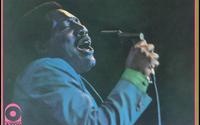From organizing festivals on farms to arranging events in Ryman Auditorium, EVAmore co-founders Channing Moreland and Makenzie Stokel have seen it all. The entrepreneurs of the music-tech company met in college in Nashville and immediately bonded over their shared passion for putting on music events. What started as a hobby quickly turned into a profession when event planners and artists started reaching out to them for assistance to bridge the gap between the two parties. EVAmore is an online booking platform for live musicians. Most recently, Moreland and Stokel came to Harvard on April 8 to share their experiences at the first ever Music Entrepreneur Conference.
The Harvard Crimson: What were the motivations and inspirations that led you all to create Evamore?
Channing Moreland: Being in Nashville, there were 15 live shows a night. And we loved it because it was like playing roulette on picking what was going to be the best event to go to. But we couldn’t get into a lot of events because it was 21 and up and we were 18 and 19. So we were like, “Why don’t we start putting on our own events?” We saw a need that the college community wasn’t able to go to as many live shows as we’d like to, so we started putting on our own.
THC: How did you find the time to create a business while involved in school?
CM: We were so obsessed with live music and it was our passion. There was never a question of, “Oh, can we make this work?” It was “how.” There were a lot of 8 a.m. crunch work sessions on Saturdays and Sundays. We always managed to get the schoolwork done, but this just became so much more in the forefront.
THC: Another service your company seems to provide is supplying a platform for artists to become popular. Was that intentional?
Makenzie Stokel: We are helping get artists out there and paid. But with that, we’re collecting a lot of data about which artists are doing best in which markets. That’s something that’s valuable to them and to the music industry, to know who’s popular, who’s coming up.
THC: Do you think this service is encouraging more artists to create music now that there are more avenues for them?
MS: I think before us, you had to be really creative to get booked or make relationships. So underground artists who are unsigned had to do that or they wouldn’t get booked. Also, a lot of artists don’t think about private events in general. To show them they can play all these shows and get paid pretty well and get live experience is another way for them to feel really confident.
CM: Something people don’t like to talk about is that when an artist is booked at a venue they are making a percentage of their ticket sales and giving away a percentage of their merchandise sales to the venue. If anything, on a a good night, if they are an up-and-coming artist, they are walking away with around 150 bucks. With us, an average event runs from 1500 bucks to 10 grand. To these artists, that three-hour event is covering their rent.
THC: You’ve spread to large cities, and cities with a lot of musical talents. Do you think it’s possible to be successful in places where there isn’t a thriving music scene?
CM: Definitely. When you look at a city like Denver or Boston, their budgets for corporate events are nearly double because of the scarcity of talent, so you can get artists there. We can even potentially work with the same pool of talent and get them there.
THC: What plans do you have for the service? What’s your next step in terms of expansion?
CM: I think something we’re excited about is what we’re building on the tech side and what that can mean on the data we are gathering. We are an asset to the industry. Technically we are getting data on up-and-coming artists. What if they get signed to a label next? What if EVAmore was getting listened to from that side? That’s exciting. Of all the things it could be, it’s our job to make sure EVA more stays open for the ones that make the most sense.
THC: In terms of the next place to expand—Channing, you’re originally from Boston—do you think there’s any chance of you bringing EVA more to Boston?
CM: Boston is a special place in my heart. There are incredible talents here, but you see them going to New York, L.A. and Nashville because there is no industry here. That’s why I love that we get to come to this conference. We’re finally talking about innovating music technology here in Boston. So absolutely I want it to come to Boston. I want to give the artists here more bookings. We’d love to reinvest back into this town.
Read more in Arts
Is ‘Legion’ Losing its Edge?Recommended Articles
-
Vicinity of HilarityKevin J. Friel and Anna Kim examine a variety of approaches to the comedy music genre.
-
 Arts Asks: Scott Rothkopf
Arts Asks: Scott Rothkopf -
'The State of Hip Hop' Is More Business-Minded Than EverThe panelists shed light on how they’ve adapted to hip hop’s changing landscape, emphasizing the importance of how both a passion for music and a mind for business are equally important nowadays to succeed in the industry.
-
 Sean Miyashiro talks 88rising, Asians in the Media, and Harvard
Sean Miyashiro talks 88rising, Asians in the Media, and Harvard -
 The King of Soul in the Twenty-First Century: Otis Redding and The Dock of the Bay 50 Years Later
The King of Soul in the Twenty-First Century: Otis Redding and The Dock of the Bay 50 Years Later













